It’s the easiest money you’ll ever make. Just quarantine in a room for two weeks, dine on free meals and binge-watch Netflix to rake in thousands of pounds.
That’s according to ‘flu camp’ influencers, at least, who boast being paid up to £4,400 just to get sick and spend two weeks in peaceful isolation.
The reality of the job is quite different though, according to other volunteers, who documented painful medical procedures, bland food, forced fasting and unfriendly staff.
Flu camp, a series of clinical trials, sees thousands of young Brits deliberately infected with a virus, forced to quarantine for days on end and administered a trial vaccine or drug.
The aim is to effectively develop treatments and vaccines for common respiratory illnesses such as the flu, COVID-19 and RSV.
Around 150,000 people were recruited to take part in commercial research studies last year – up from just 44,500 the year before, according to The Association of the British Pharmaceutical Industry (ABPI).
The rise has partly been driven by influencers on social media, who post their unlimited snacks, flat screen TV’s and stunning views from their isolation rooms in Canary Wharf. All you have to do to sign up using the referral code linked in their bio, and you too can live the life.
But Lauren Bates, who posted an honest review of her time in flu camp on TikTok, said she was forced to fast, and had six blood samples taken in one day as well as a nose swab ‘rammed’ up her nostrils every 12 hours.
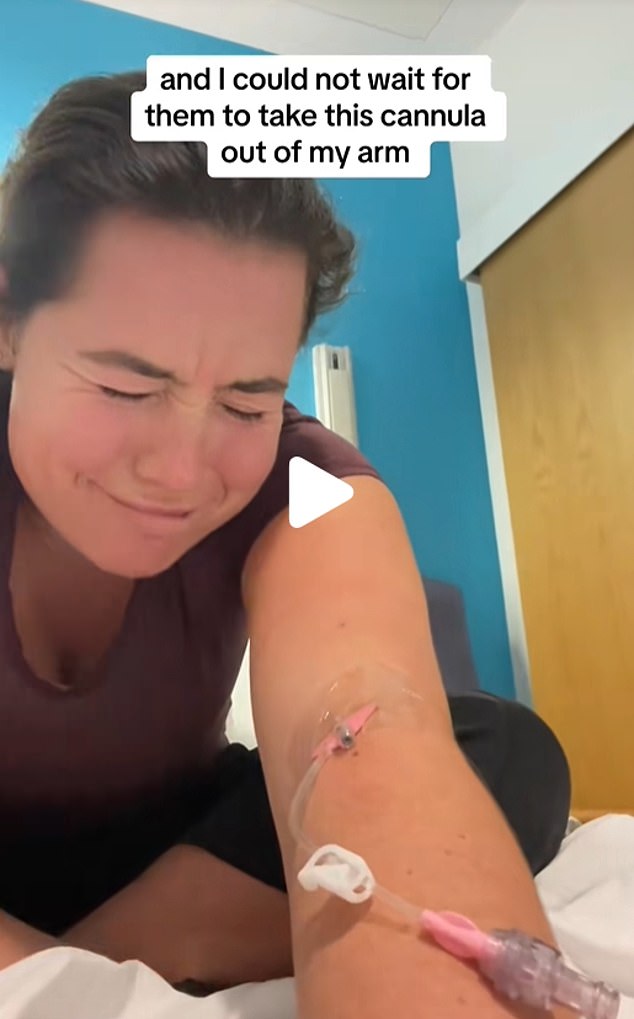
Lauren Bates (pictured) said she had six blood samples taken in one day as well as a nose swab ‘rammed’ up her nostrils every 12 hours
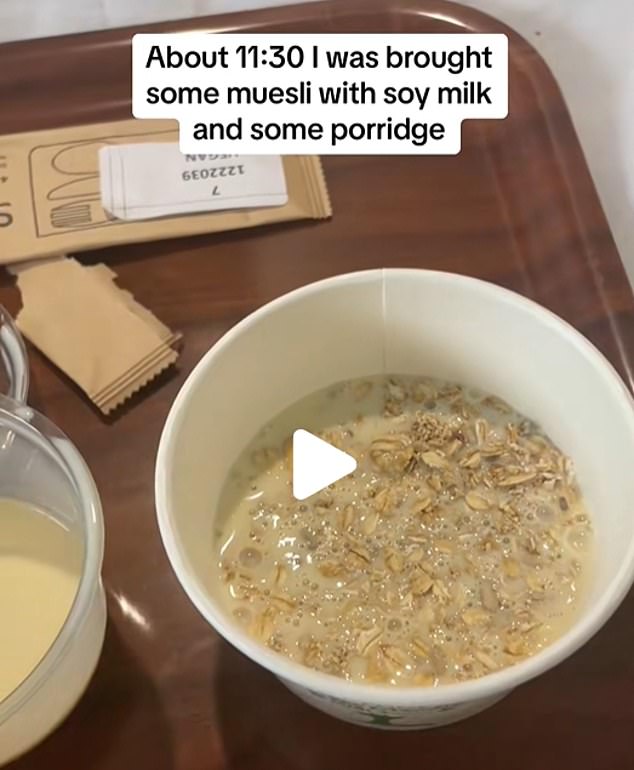
Her food included bland-looking muesli, porridge, soup, a jacket potato and yoghurt
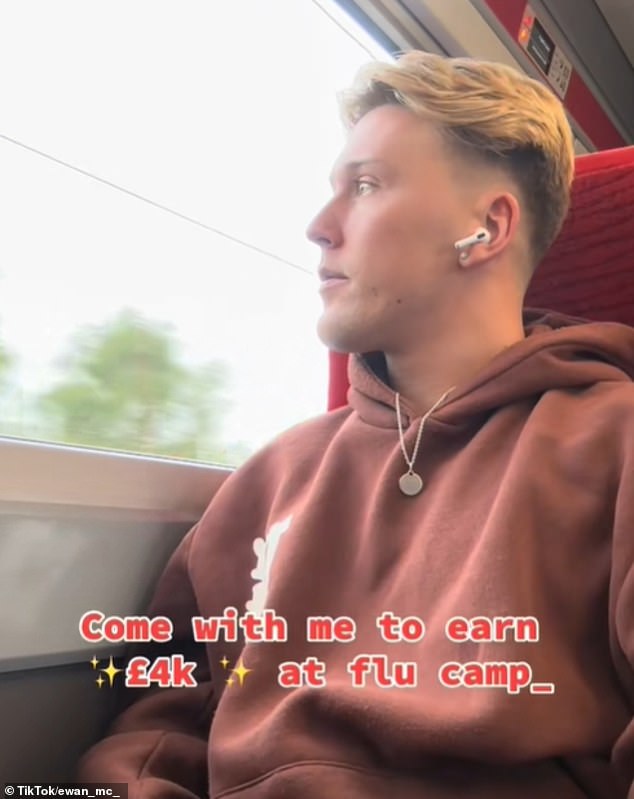
Ewan, who shares positive experiences of flu camp on TikTok, posted a video titled ‘Come with me to earn £4k at flu camp’
Today marks a week of me being in this room, bit five days since being infected with flu, hence why it is referred to as Day 5. Lots of samples taken today. I did not enjoy having a cannula in my arm… The only symtoms I have now are a bit of a stuffy nose. If you’re interested in applying to FluCamp, feel free to use my referral code 1222039. I do get a generous referral bonus if you use it and you take part in a trial, so I would be very grateful if you do! Of course no pressure at all; look into it yourself and speak to the staff. They can help you make a decision on whether you’d be comfortable taking part. #flucamp #clinicaltrial #clinicaltrials #vegan #flu
Her food included bland-looking muesli, porridge, soup, a jacket potato and yoghurt.
At one point, Lauren struggled to put a hoodie on despite feeling cold due to the cannula in her arm.
‘This cannula is p****** me off,’ she said.
One person commenting on the video reacted: ‘The cannulas hurt me so bad!! I have high pain tolerance and they are awful for me. I’d 10/10 rather get blood drawn.’
Jennifer, who travelled from Birmingham to London for her first flu camp appointment, shared her experience on TikTok after being influenced to do the trial by a friend.
‘Honestly, I’m not the biggest fan of blood tests,’ she said. ‘I’m not going to lie, the whole experience was a bit strange, and the staff weren’t too friendly.
‘I had my blood test and I honestly hated it.’
Their experiences differed significantly from that of one influencer, Ewan, who speaks more highly of flu camp on social media and has a referral code in his TikTok bio.
Influencers get a bonus payment if someone signs up to flu camp using their referral code.
Ewan, who did the trial in Canary Wharf, gave a tour of his glitzy quarantine room, boasting stunning views of London.
He showed how he was delivered yummy breakfast, lunches and dinners while kicking back to enjoy some TV and playing video games.
He then shared his hot shower, which he had in his ensuite bathroom, before ending his day with some Netflix.
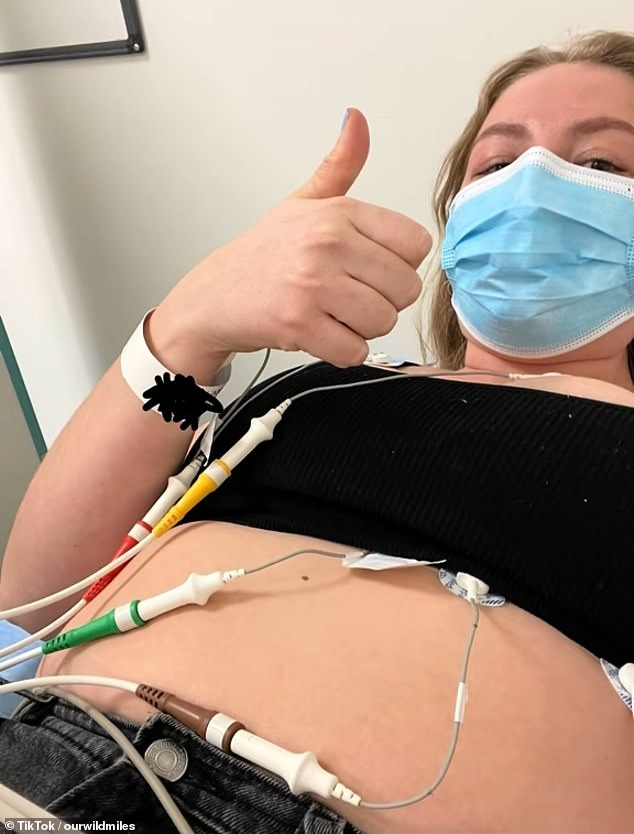
A woman shows wires coming from her body during her experience at flu camp
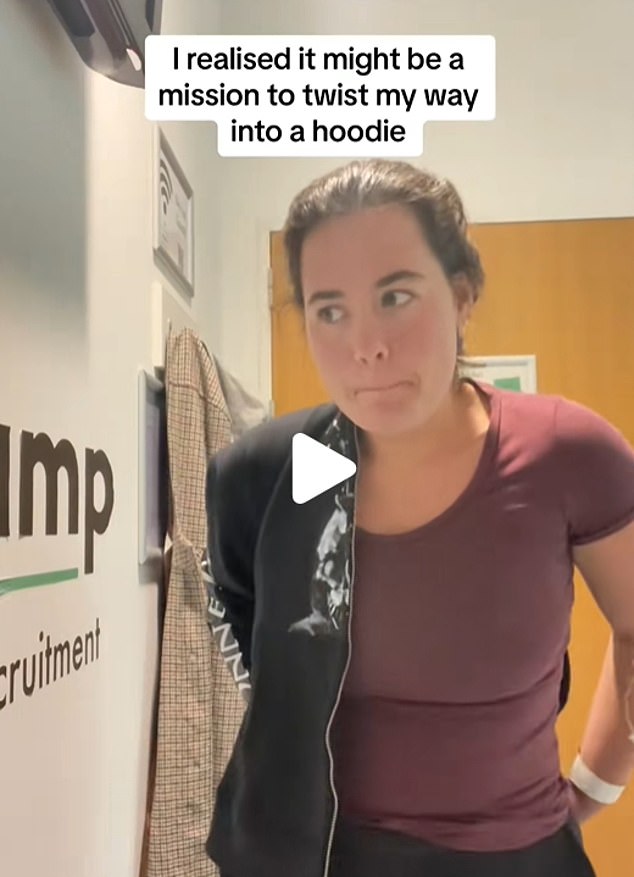
At one point, Lauren struggled to put a hoodie on due to the cannula in her arm
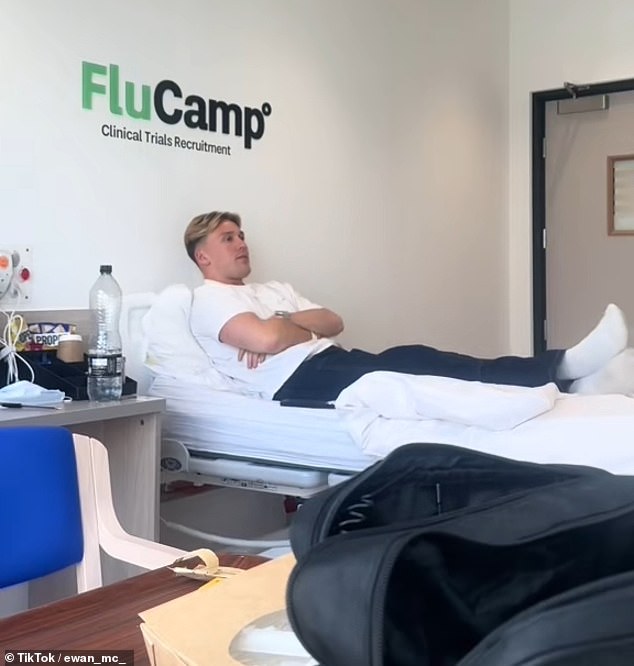
Ewan gave a tour of his quarantine room, and shared his delicious free meals and snacks
As well as influence from TikTok, the rise in participants last year was also due to a small number of less intensive studies, which accounted for 100,000 volunteers.
Britain is the fifth most popular destination for phase one clinical trials, where new drugs are trialled on a small number of patients.
The number of clinical trials in the country increased from 411 to 426 in 2023.
Clinical trials have long been a popular money-making method among students as a means to increase their income.
But after the pandemic, a rise in companies allowing WFH mean an increasing number of professionals are continuing their everyday jobs while raking in thousands in quarantine.
Andrew Catchpole, the chief scientific officer at FluCamp – which has been running trials in London and Manchester since 2001 – told The Telegraph: ‘We have quite a lot of professionals who come to our trials and take a couple of weeks off work, or even carry on working, because now it’s so easy to work remotely.
‘They’re in a room, they’ve got wifi access, they can carry on working.’
He added: ‘The pandemic made clinical trials a talking point. We saw literally tens of thousands of people trying to volunteer because they wanted to do their bit to help society – there was a lot of altruism going on.’
A FluCamp spokesperson said: ‘Tens of thousands of people volunteer for FluCamp each year, and we make sure that every single one of them understands that they are entering a clinical trial and provide informed consent. The team at FluCamp explain that a clinical trial will involve having cannulas inserted, regular blood tests, medical monitoring and sometimes short periods of fasting, as applicable to each individual study.
‘We carry out routine satisfaction surveys with all volunteers during and after the trials and have a satisfaction score of 9.7 out of 10. Many volunteers recommend our trials to friends and family, and also return to us for future trials. Any concerns about the experience are always followed up on by our after care team and this helps us to continually improve the volunteer experience.
‘A two week FluCamp clinical trial is not for everyone, but if potential volunteers have any worries or concerns about what will happen during the course of the trial, our professional team are there to make sure that they are fully aware before making any commitment, and if volunteers do wish to leave the trial at any time during the process they can.
‘We continue to monitor all feedback to ensure we continue to improve the experience for trial participants.’